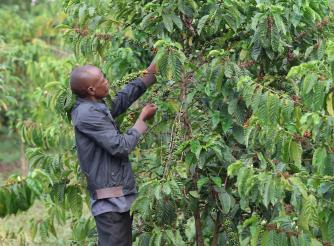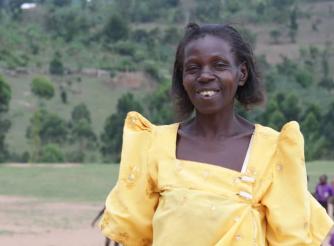How Big Corporations Are Fueling Climate Crisis: ActionAid Uganda Exposes the Truth

By Robert Asiimwe
Are we really funding our own destruction? In the face of escalating climate crises, the Global South is caught in a web of corporate greed and misallocation of public finance. ActionAid’s groundbreaking report, “How the Finance Flows: Corporate Capture of Public Finance Fuelling the Climate Crisis in the Global South,” lays bare a troubling reality: while communities bear the brunt of environmental degradation, massive corporations thrive on public subsidies meant for climate resilience.
How much public money is channeled into harmful industries? A staggering $438.6 billion annually goes to the fossil fuel sector alone. Is this the path to a sustainable future? The report urges us to confront these questions head-on: who truly benefits from our climate finance, and at what cost to our planet and future generations?
The report sheds light on how massive multinational corporations like fossil fuel giant Shell and agribusiness titan Bayer (the parent company of Monsanto) are benefiting from public finance meant to support climate-vulnerable countries. These industries are causing environmental destruction while successfully securing a significant share of public subsidies. Between 2016 and 2023, the fossil fuel sector alone received a shocking $438.6 billion annually in public subsidies across the Global South.
Such subsidies continue to fuel climate-wrecking activities, leaving little room for investment in sustainable and community-based solutions. Industrial agriculture is another culprit, receiving $238 billion annually during the same period, worsening land degradation and contributing significantly to greenhouse gas emissions.
One of the key findings of the report is the gross imbalance in climate finance. While climate finance from Global North countries is intended to support transitions in developing countries, it remains insufficient. For every dollar invested in renewable energy in the Global South, 40 times more is being funneled into fossil fuels. This shocking disparity hinders the progress toward a green energy transition and traps countries like Uganda in environmentally destructive pathways.
This finance imbalance is stark. With trillions of dollars required to tackle the climate and development crises, Global North nations have only provided climate finance grants that amount to a meager fraction of what is needed. In contrast, over $677 billion of public funds is being pumped into climate-destructive sectors every year funds that could have paid for universal primary education across sub-Saharan Africa multiple times over.
The report also serves as a vital continuation of ActionAid Uganda's work in climate justice. The organization has been at the forefront of advocating for policies that promote climate-resilient development. Key initiatives include promoting clean energy technologies, supporting agroecology, and policy advocacy, such as pushing for Uganda's first-ever National Agroecology Strategy and the Climate Finance Strategy.
One major milestone was last year’s launch of the Fund Our Future campaign, conducted in partnership with other climate justice organizations. This campaign assessed Uganda’s readiness to address climate-related loss and damage—a crucial aspect as Uganda and other Global South countries experience increasingly devastating effects of climate change.
ActionAid International Uganda’s report makes it clear that there’s no time to waste. The report calls for an urgent redirection of public finance from harmful industries like fossil fuels and industrial agriculture towards people-led climate solutions. What alternative solutions exist that prioritize people over profits? Solutions such as decentralized renewable energy systems, agroecology, and gender-responsive agricultural extension services can create sustainable livelihoods and enhance climate resilience.
For Uganda, this means scaling up efforts to implement sustainable practices that safeguard livelihoods, enhance food security, and provide access to clean energy. ActionAid Uganda calls on wealthy nations to meet their climate finance commitments and support Global South countries on the frontlines of the climate crisis. Such support must come in the form of grants rather than loans that exacerbate debt problems.
Why This Report Matters for Uganda?
This report is a wake-up call for Uganda. As a country highly vulnerable to climate impacts, Uganda must prioritize climate action within its national policies. Can we afford to ignore the voices of the most affected communities? Investing in clean energy, agroecology, and climate-resilient agricultural practices is not just about meeting global climate targets; it’s about ensuring a sustainable future for Uganda’s communities. By focusing on community-centered solutions and pushing for just transitions, Uganda can build a more resilient economy that benefits its people while contributing to the global fight against climate change.
The “How the Finance Flows” report offers invaluable insights into how corporate capture of public finance is derailing climate action in the Global South. For Uganda, the message is clear: action is needed now to redirect public finance toward sustainable solutions that prioritize people over profit. Through ongoing advocacy, research, and collaboration with stakeholders, ActionAid Uganda continues to champion the cause of climate justice. The path forward requires a collective effort from national governments to global actors to ensure that climate finance supports transitions that safeguard the environment and uplift the most vulnerable communities.


